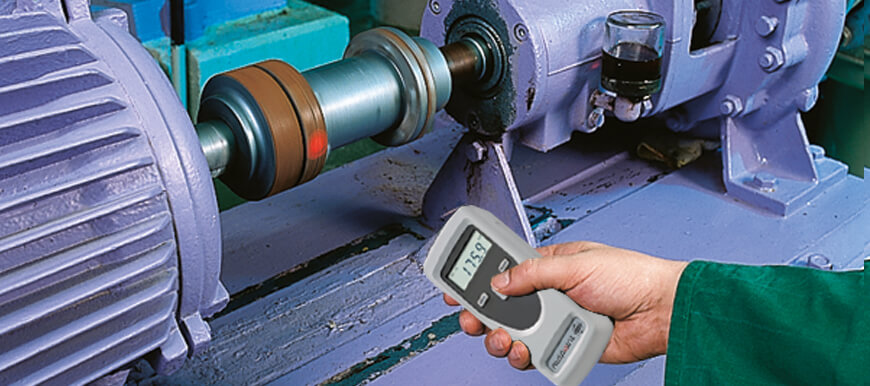
Why is My Tachometer Going Up and Down Erratically?
Share
Tachometers are essential instruments in vehicles, providing valuable data about engine speed in revolutions per minute (RPM). However, tech professionals and enthusiasts sometimes encounter situations where they wonder, why is my tachometer going up and down? Fluctuations in the tachometer reading can be perplexing and may indicate underlying issues that need immediate attention.
This article delves into the reasons behind tachometer fluctuations, common causes, and solutions, ensuring you have a comprehensive understanding of what your tachometer is telling you. Whether you're a seasoned mechanic or a curious car owner, this insight can help you diagnose and resolve problems swiftly.

Common Causes of Tachometer Fluctuations
1. Electrical Problems
One of the most common culprits behind erratic tachometer readings is electrical issues within the vehicle. Faulty wiring, poor connections, or electrical shorts can lead to inaccurate signals being relayed to the tachometer. Ensure that all wiring connections are secure and free from corrosion.
2. Faulty Sensors
Another frequent cause is a malfunctioning sensor. In many vehicles, tachometers derive their readings from crankshaft position sensors or camshaft position sensors. If these sensors are malfunctioning or damaged, they may send inconsistent signals that cause the tachometer to bounce.
3. Engine Performance Issues
Performance problems within the engine itself can also contribute to fluctuations in tachometer readings. Issues such as misfiring, poor fuel delivery, or vacuum leaks can affect engine speed, leading to irregular tachometer behavior. For a thorough diagnosis, you might also want to explore [this article](https://iottechnologies.io/blogs/tachometer/why-would-a-tachometer-stop-working).
4. Grounding Issues
Grounding problems can interfere with electronic signals in your vehicle, leading to erratic behavior in various gauges, including the tachometer. Checking the grounding of your vehicles electrical system can be a good troubleshooting step.
How to Diagnose Tachometer Issues
Step-by-Step Diagnosis
Diagnosing why your tachometer is going up and down can be straightforward if approached methodically. Here is a concise outline:
- Inspect the wiring connected to the tachometer for corrosion or loose connections.
- Test the relevant sensors using a multimeter to determine whether they are functioning correctly.
- Check for engine misfires by reviewing diagnostic trouble codes (DTCs) using an OBD-II scanner.
- Examine the vehicle's grounding points to ensure that they're secure.
For additional guidance on diagnosing tachometer issues, consider visiting [this informative resource](https://iottechnologies.io/blogs/tachometer/how-to-test-boat-tachometer-with-multimeter).
Repair and Replacement Solutions
1. Wiring Repairs
If you identify any issues with the wiring linked to the tachometer, repair or replace the affected sections as needed. Ensure that connections are clean and tight to maintain optimal signal transmission.
2. Sensor Replacement
In cases of faulty sensors, replacing them may be necessary. Depending on your vehicle, sensors are often straightforward to replace with basic tools. Always refer to your vehicles service manual for specific instructions.
3. Engine Tuning
If engine performance issues are at play, you may need to perform a tune-up or seek professional help to resolve underlying problems. This can include cleaning fuel injectors, replacing spark plugs, or addressing vacuum leaks.
4. Ground Repair
Secure any grounding points throughout the vehicle to mitigate fluctuations in signal transmission. This can often resolve erratic gauge behavior.
Conclusion
Understanding why is my tachometer going up and down is crucial for maintaining optimal vehicle performance. By diagnosing the root of the problem and addressing it promptly, you can prevent further complications and ensure your vehicle operates smoothly. For more insights on tachometers, you can visit [this page](https://kus-usa.com/resources/how-does-a-tachometer-work/).

FAQs
1. What does a fluctuating tachometer indicate?
A fluctuating tachometer can indicate electrical issues, sensor malfunctions, or engine performance problems.
2. How can I test my tachometer's accuracy?
You can use a multimeter or an OBD-II scanner to check the signals being sent to the tachometer.
3. Can I drive with a malfunctioning tachometer?
While it may be possible to drive, doing so is not advisable as it may mask underlying mechanical issues that could lead to severe damage.
